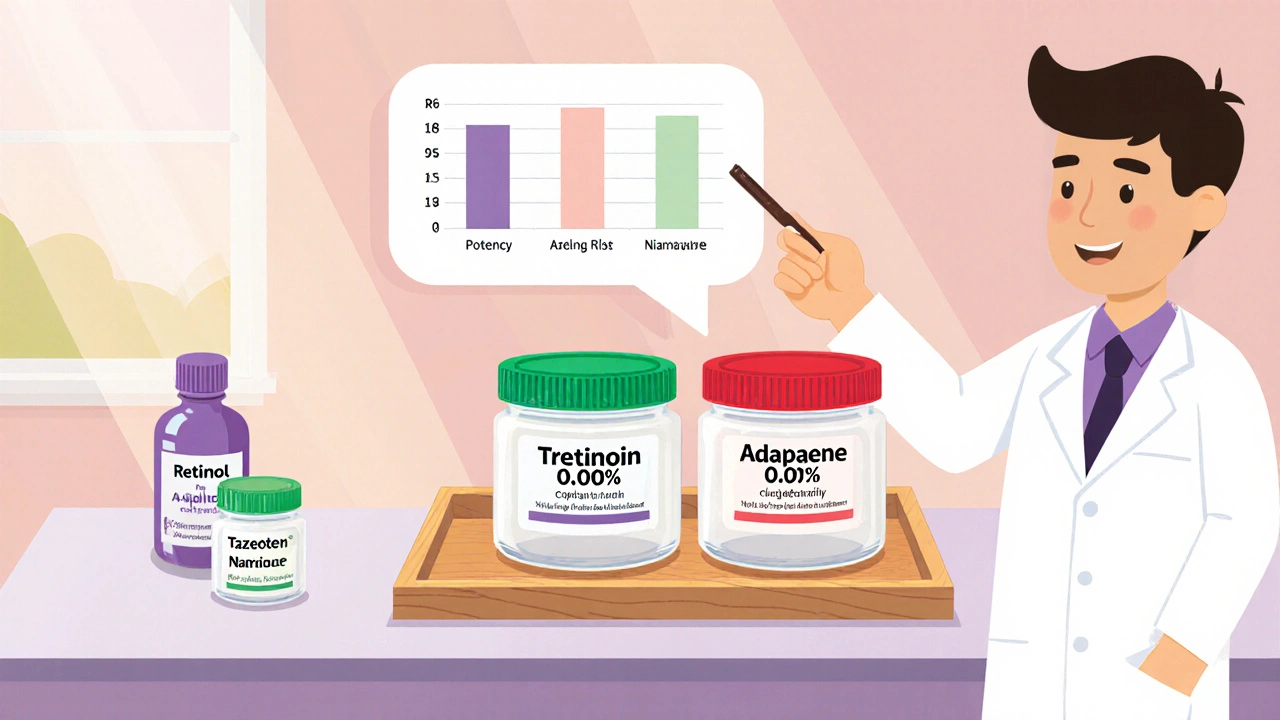Retinoid Comparison: Which One Works Best for Your Skin?
When you hear retinoid, a class of vitamin A-derived compounds used to treat acne, aging, and skin texture. Also known as vitamin A derivatives, they’re one of the few skincare ingredients backed by decades of clinical proof. But not all retinoids are the same. Some are prescription-only, others you can grab off the shelf. Some sting like crazy, others barely feel like anything. And some? They actually change your skin’s structure over time.
Take tretinoin, the original prescription retinoid, used since the 1970s for acne and wrinkles. It’s strong, fast-acting, and often the first choice for dermatologists. Then there’s adapalene, a gentler retinoid now available over-the-counter, designed to reduce irritation while still clearing pores. And then there’s isotretinoin, an oral retinoid used for severe, stubborn acne that doesn’t respond to anything else. These aren’t just different strengths—they’re different tools for different jobs.
People often mix them up because they all come from vitamin A, but their effects? Totally different. Tretinoin boosts collagen and speeds cell turnover. Adapalene targets inflammation and clogged pores without drying you out. Isotretinoin shrinks oil glands and can clear acne for good—but it comes with serious side effects and requires strict monitoring. Then there are others like tazarotene for psoriasis, and retinol, the mild cousin you find in drugstore creams. Each has its own profile: how fast it works, how long it lasts, how much your skin protests.
What you pick depends on your skin type, your goal (acne? wrinkles? texture?), and how much your skin can handle. If you’re new to retinoids, starting with adapalene makes sense. If you’ve tried everything else and your acne won’t quit, isotretinoin might be the answer. And if fine lines are your main worry? Tretinoin still leads the pack. The key isn’t finding the strongest one—it’s finding the right one for you.
Below, you’ll find real comparisons based on actual user experiences and clinical data. We’ve pulled together guides that break down how Accutane stacks up against other acne treatments, how topical retinoids compare in potency and irritation, and what to expect when switching from one to another. No marketing fluff. Just facts, side effects, costs, and what works in real life.
Tretinoin 0.025% vs Topical Alternatives: Pros, Cons & Best Uses
Explore how Tretinoin 0.025% measures up against popular acne and anti‑aging alternatives. Get side‑effect insights, a comparison chart, and tips to pick the right retinoid for your skin.
read more

